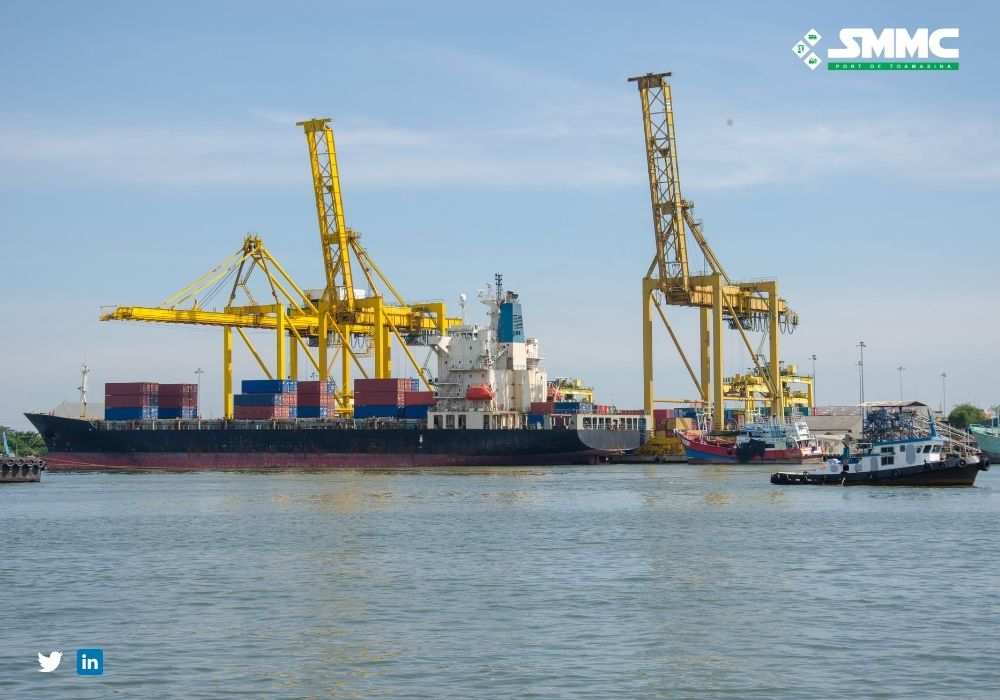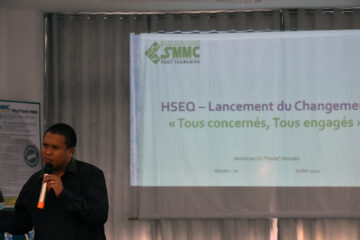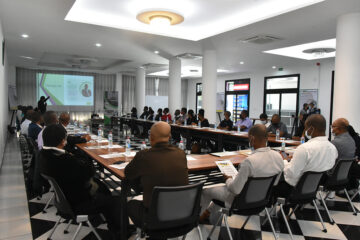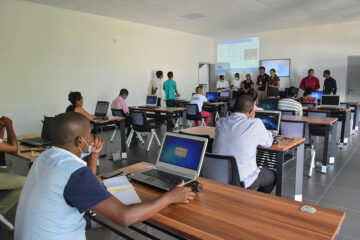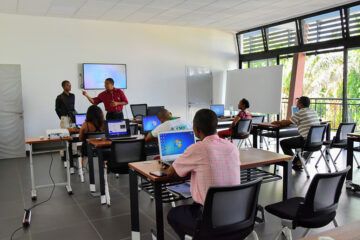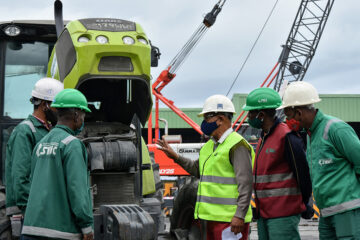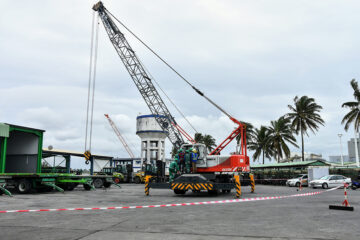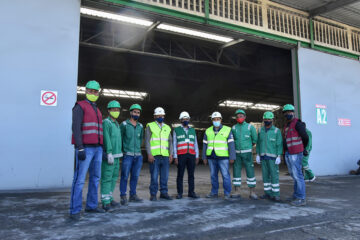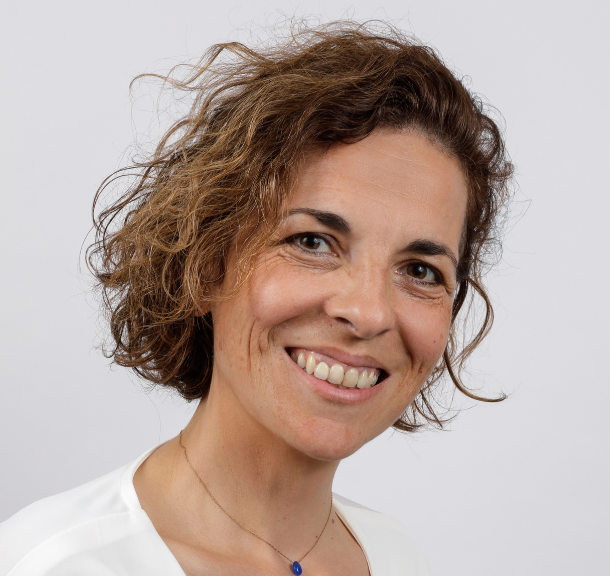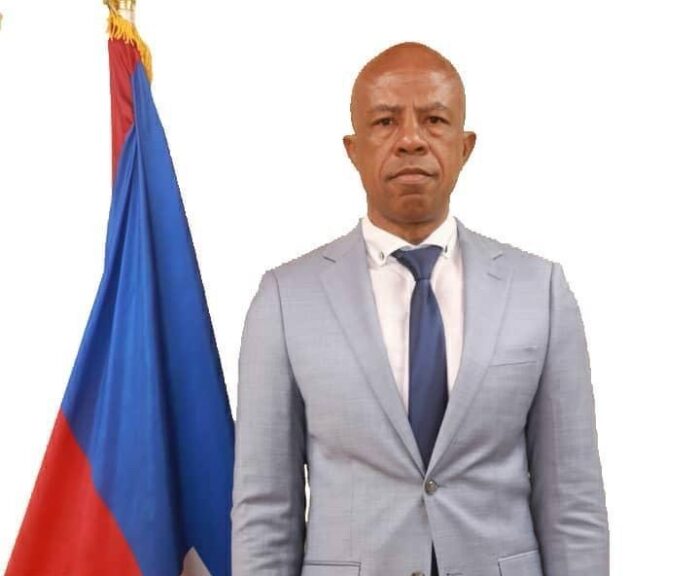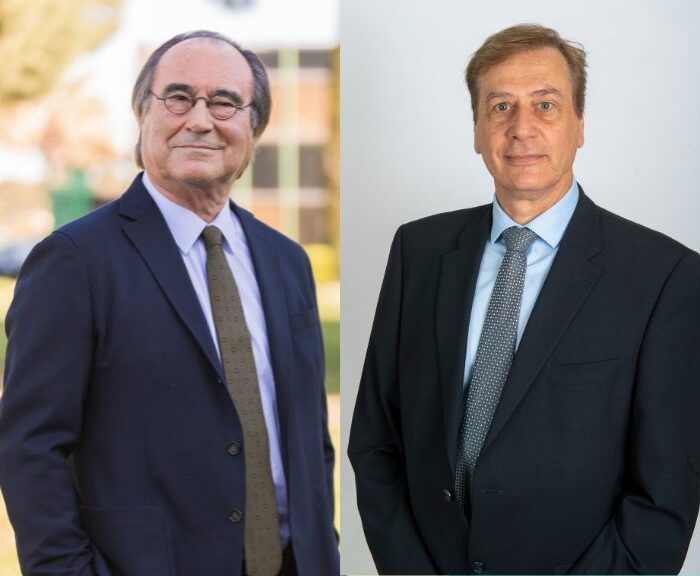Qualified and well prepared professional are crucial for any succesful company. It is fundamental to promote lifelong training for all employees that will allow them to gain new skills, and qualify them to respond to new challenges, such as smart port tools. In this interview with Mr. Niriko Tsirenge, CEO of Société de Manutention des Marchandises Conventionnelles (SMMC) we will learn about their Port Academy Center Toamasina and the new agreements with the universities that help port workers to be more efficient and develop their careers.
The Société de Manutention des Marchandises Conventionnelles (SMMC) is member of AIVP since 2019.
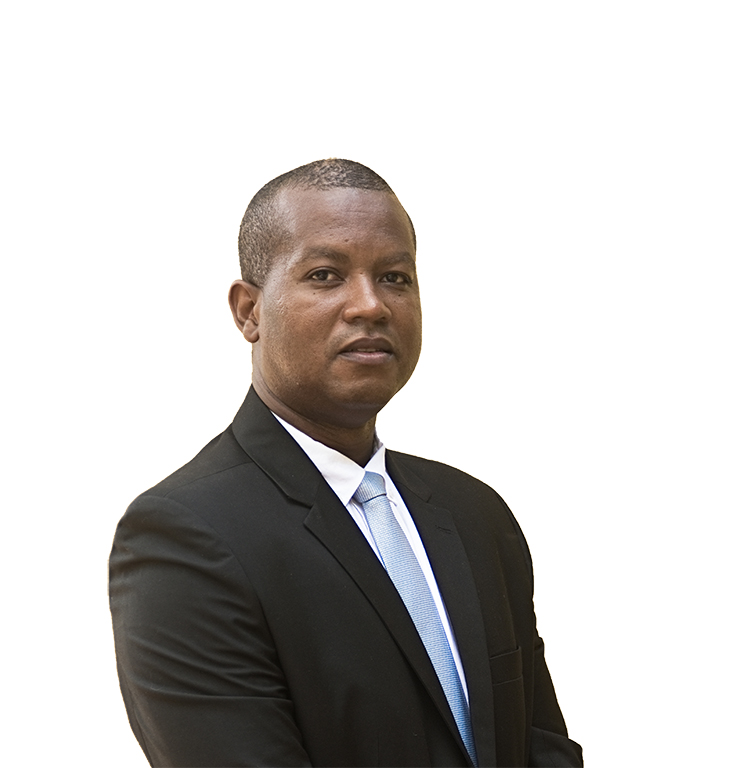
AIVP – “Respecting our human capital” is one of the cardinal principles of SMMC’s Code of Conduct. We often understand the concept of human capital to include training of personnel, whether in technical skills such as using specific tools, or for reasons of social responsibility, such as raising awareness of barrier measures in response to Covid-19.
What is your vision of human capital, and how do you promote it?
Mr. Niriko Tsirenge, CEO of SMMC – Human capital is the driving force that spearheads any development initiative. For a long time it was overlooked in favour of more utilitarian, authoritarian management approaches. But it must now be central to our efforts and our concerns. That is our firm belief.
In that sense, we need constantly to ensure that we are equipped with the right skills needed to effectively tackle the new demands of the technical and technological transformation sweeping through the shipping world in general. We can only do that by focusing on providing support and training to our workers, enabling them to remain productive, happy, and committed to our strategic goals and HSEQ targets.
AIVP – The Port Academy Center Toamasina was officially opened on 17 November 2020. It is a place dedicated to awareness and education about port careers. A knowledge-sharing centre for maritime and port activity, this new site echoes the wider Port Center concept that AIVP has been promoting for many years.
How will SMMC use the Port Center Academy? What is your involvement with this initiative?
Mr. Niriko Tsirenge, CEO of SMMC – The Port Academy Center of Toamasina (PACT) meets all current training requirements in the port sector. It is a major opportunity for SMMC, as the creation of this centre comes at the same time as we are reforming our policy on the management of human capital.
Outside the training sessions we provide directly for our own employees, we have a huge chance to forge closer links with other port organisations who hold their training sessions there, so all of our technicians can benefit from them. That is unprecedented for us, as our staff can develop cross-cutting skills and acquire a deeper understanding of port careers and all of the different port operations.
Finally, the PACT brings undeniable benefits, as training and structural costs are reduced by pooling resources.
AIVP – In August 2020, SMMC signed a “Partnership Agreement” with Barikadimy University, and specifically the Law, Economic, Management, Mathematics, and Computer Science departments. A new “port management and logistics” course was created in conjunction with SMMC, to develop the skills of undergraduate students looking for careers in the port sector.
Can you tell us more about the teaching provided and your involvement with this course?
Mr. Niriko Tsirenge, CEO of SMMC – SMMC’s senior directors have committed to this initiative, as a way of modernising the image of the port sector in Madagascar and attracting new talents, while passing logistics and port knowledge to as many young people as possible, preparing them to take over the baton in the future.
Our aim is to provide young people with standard training in executive and non-executive careers in the port logistics industry. It is driven by a shared observation that there is going to be a real shortage of manpower and managers in the years ahead, if action is not taken right now in Madagascar.
One of the most edifying aspects of this commitment is that it will see us constantly update our knowledge. All of the classes we teach at the University are designed to be adjusted, to reflect real-world technological progress and changes in logistics and port practices.
That responsibility means we have to pay very close attention to developments and be extremely proactive in a constantly changing world. Incidentally, our CEO, Niriko Tsirenge, the Operations Director and other executives from SMMC regularly teach classes in Port Handling Management. Our competitiveness is improving, our offerings are developing, and our objectives are optimised thanks to our monitoring work, which has redoubled since we began our collaboration with the University.
AIVP – There was a digital culture training course in February 2021, which featured prominently on your social media accounts. We followed it with interest: dematerialisation and digitisation of port processes are racing full steam ahead in Sub-Saharan Africa. But smart ports must not forget the importance of human beings!
How does digitisation require training and awareness of workers?
Mr. Niriko Tsirenge, CEO of SMMC – Digitisation is undeniably a game changer for the port sector in Madagascar. It is already having an impact on job descriptions and the organisation of companies that adopt it, and will continue to do so in the longer term.
Any organisation that wants to improve its competitiveness and leadership now has every reason to embrace this technological transformation.
However, that is only possible by involving all of the stakeholders involved right from the outset: employees, as well as private and public partners. Digitisation cannot be achieved alone, as it really only makes any sense if the whole system moves to implement it gradually. Hence the need to inform, educate, raise awareness, communicate, and above all support the managers and technicians through this major change.
